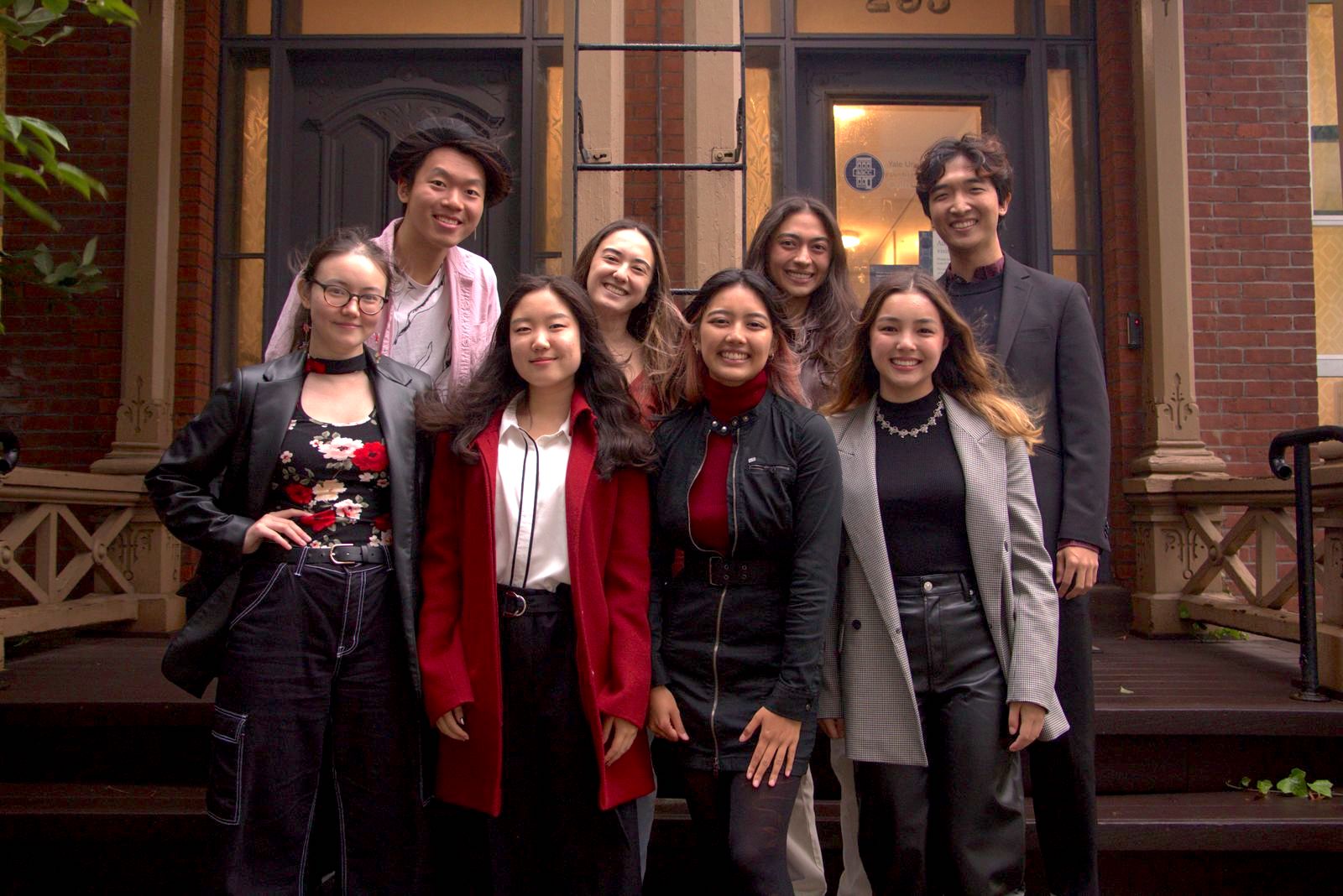AACT creates a stage for Asian-American Theater
The Asian American Collective of Theatermakers recently announced a board turnover.

Courtesy of Sam Ahn
As someone invested in both acting and screenwriting, Sam Ahn ’24 spends a considerable amount of time thinking about dramaturgical questions. What makes good drama? How do you raise the stakes for both the characters and the audience? For Ahn, “theater is a mirror to ourselves.” However, he said the “mirror” within the theater does not seem to adequately reflect Asian voices.
When Ahn realized that there was no “centralized Asian [theater] community” at Yale, he decided to get new stages for schools and make his own collective, Asian American Collective of Theatermakers. After Ahn recruited Asian American friends within different theater spaces, the AACT board was formed in fall of 2022.
“I had a theater [professor] in a class I took last year say, ‘Theater is a revelation of the human condition,’” said Ahn. “It can be deeply affecting and impactful and moving and cathartic or devastating for anyone in theater: the actors, spectators, people working behind the scenes. There’s nothing else like it. And it’s just terribly sad when you can’t really relate to anything that’s being put on.”
Ahn hopes that AACT will disseminate information and “share knowledge” with those at Yale who have never engaged with theater before.
In addition to making theater and knowledge about Yale’s theater programs more accessible, the AACT works to foster community and shared spaces for Asian American student actors, playwrights, and directors. One of the ways the AACT does so is through a weekly playwriting workshop.
“Playwriting is really a community form of writing,” Ahn said. “You need to hear other people say your work, in order for you to really hear or know what your piece is. You can read it out loud yourself, and someone else can read it out loud. And these are two completely different things. And theater, in the end, is meant to be performed. It’s meant to be said, so you need someone else to say your work while you’re writing it.”
For AACT board member Olivia O’Connor ’24, AACT also offers Asian Americans a space to reflect and speak about shared experiences about being an Asian American actor in predominantly white theater spaces.
As a six-month old group, the AACT faces the challenges of maintaining a steady membership and establishing a presence on campus. Yet, according to O’Connor, there are “benefits” to working with a project “so early in the process.”
O’Connor told the News that the relatively new existence of AACT gives the board members more creative control over the operations and purpose of AACT.
“We’ve all collectively had a lot of input as to what the organization’s focus should be, and what kinds of events we want to do.” O’Connor told the News. “It’s very cool to be able to set the question of what we think is the best way for the organization to run.”
With a recent board turnover, the direction of AACT is set to change even more.
One of the newest members to join this board is Alicia Shen ’26, who hopes to contribute to “building robust and accessible programs” for those interested in participating in Asian-American theater.
“It’s just a very perfect group that fits a very important part of my identity,” Shen said. “Whenever I’m looking at theater, I’m most drawn to productions that represent my experience, and I haven’t been able to meet that many people who are Asian and do theater here. But I was really lucky because my first show at Yale featured Asian American characters so being more exposed to that community excites me.”
At the Saybrook Underbrook, from April 6 to April 8, the AACT will showcase their production of “Love Letters,” directed by Sam Ahn and sponsored by the AACC. After watching and falling in love with the production as an eighth-grader, Ahn wanted to “put an Asian twist” on it.
“[‘Love Letters’] is a show about connecting when you’re super lonely,” Ahn said. “There’s a writer I like named Jay Caspian who wrote this book called ‘The Loneliest Americans’… It says that Asian Americans are the loneliest Americans because we’re trying to construct an identity that is essentially hollow. A Korean person doesn’t share the same experiences like a Pakistani except we both like to call ourselves Asian American. What do you make of that? There’s just a lot of fascinating stuff dramaturgically about Asian identity.”
AACT’s playwriting circle occurs every Sunday from 1-3 p.m. in the AACC Yung Living Room.
Correction 2/21: The previous version of this article misstated that the acronym AACT stands for Asian American Coalition for Theater. It also mistakenly said that the group started in spring of 2022 — the AACT officially formed in September of 2022.







